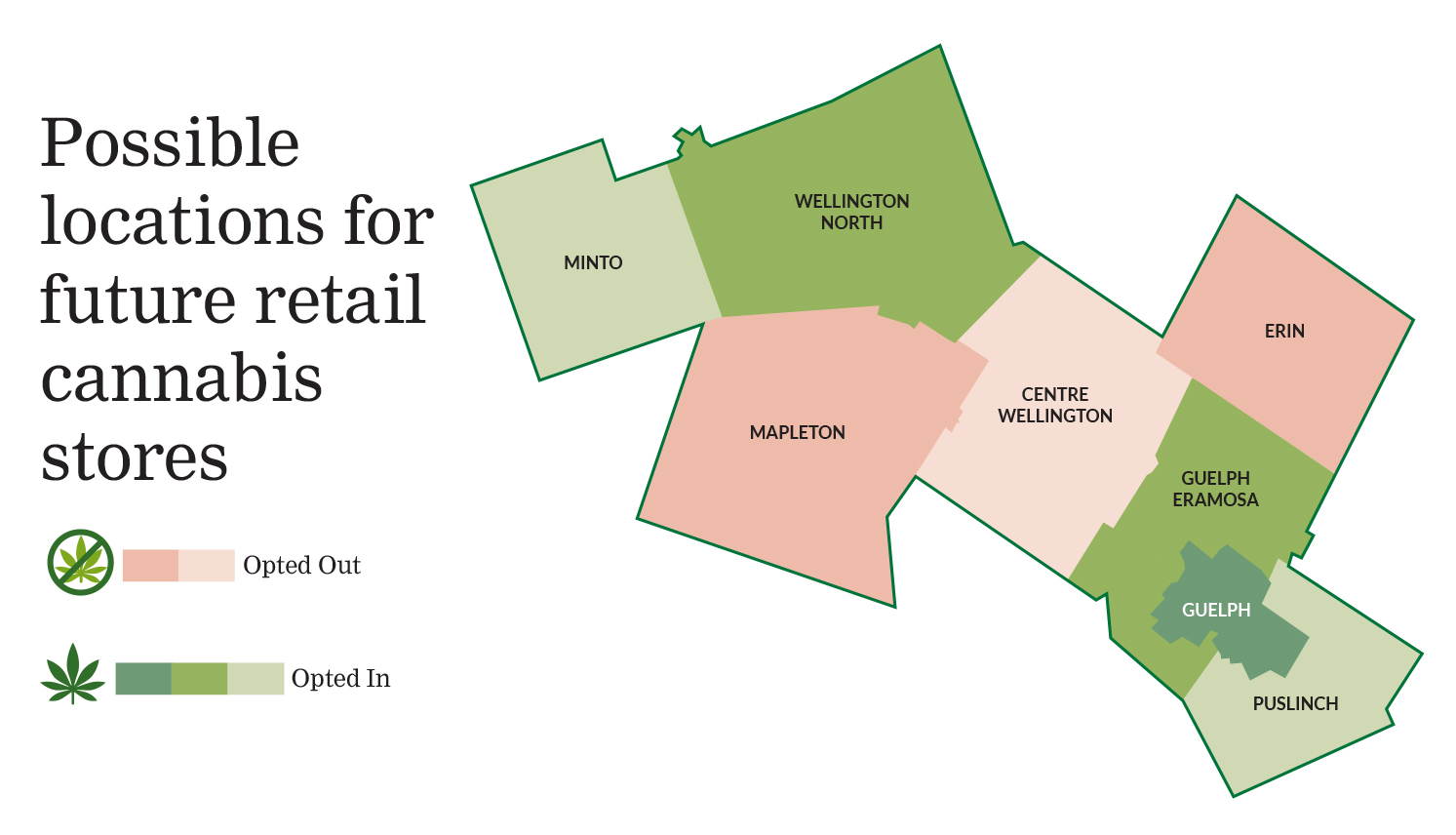WELLINGTON COUNTY – It could be years before a marijuana store opens in Wellington, but the majority of the county’s lower tier municipalities have decided to allow future retail cannabis sales.
Guelph-Eramosa, Minto, Puslinch and Wellington North have declared themselves open to hosting pot stores, while Centre Wellington, Erin and Mapleton have opted out for now.
Province-wide, 337 of 414 lower-tier municipalities (81%) will permit the establishment of retail cannabis outlets, while 77 (19%) opted out by the Jan. 22 deadline, including large urban centres such as Markham, Mississauga and Vaughan.
Opponents of the private pot stores have argued, among other things, that municipalities will have no say on the number and location of the stores, which will make marijuana more accessible to youths.
Proponents counter banning local sales of a legal product makes little sense, as the stores could combat the black market and ensure a safer product.
Members of local councils also saw both sides of the debate.
“There is no rational reason to suggest this is any different (than alcohol and tobacco),” stated Puslinch councillor Jessica Goyda at a meeting earlier this month.
She noted all three substances are legal for purchase in Canada, despite their negative impacts on users.
“The effects of cannabis are undeniable, but the fact of the matter is that’s not really what we are deciding,” Goyda said.
Others, like Centre Wellington councillor Neil Dunsmore, objected to the province’s plan for cannabis sales.
“I think this model has too many holes in it, and potential rewards are not enough to offset the cost to the community,” said Dunsmore.
Funding
A key consideration for many municipalities was the province’s declaration that those who opt out of cannabis sales will not be entitled to receive a portion of future tax revenue.
Municipalities that did not opt out will receive 50 per cent of the surplus of the province’s portion of the federal tax on recreational cannabis – if that amount exceeds $100 million over the first two years of legalization.
The province also committed up front to provide $40 million in funding over two years to help municipalities with the cost of cannabis legalization.
Many municipal officials viewed this funding as insignificant, considering it is divided among over 400 municipalities on a per-household basis.
The first $15 million was handed out earlier this month and on Jan. 23 the province announced the second $15-million instalment would be distributed by the end of February.
The 77 municipalities that opted out will receive $5,000 each, while the remaining 337 will receive at least $5,000, awarded on a per-household basis.
The province stated in a press release the remaining $10 million will “help address costs from unforeseen circumstances related to the legalization of recreational cannabis,” with priority given to municipalities that have not opted out of cannabis sales.
Licences/sales
The initial April 1 rollout of 25 private retail cannabis stores will be limited to municipalities with a population greater than 50,000.
However, the province has stated more licences will be issued when it has “determined that the federal government has provided for enough reliable supply.”
All provinces in Canada have had to deal with a supply shortage since the federal government legalized recreational cannabis use on Oct. 17.
In Ontario, where sales are currently limited to the online Ontario Cannabis Store, sales fell to $10.1 million in November from $11.7 million in October (in just two weeks), according to Statistics Canada.
Across the nation, cannabis purchases online and at pot stores totalled $54 million in November, the first full month of retail sales.
That figure is up from $43.1 million in October.




